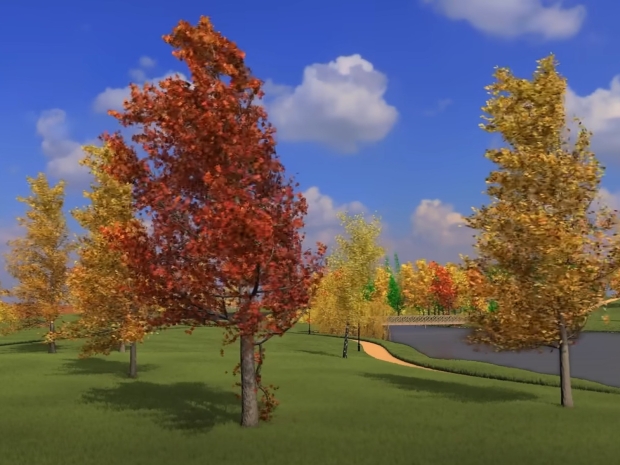According to the boffins at AMD, this method cuts GPU VRAM usage from a ridiculous 34.8 GiB down to just 51 KiB which would be a 600,000-fold reduction.
Instead of dumping all the geometry into memory, the GPU follows a set of rules to generate trees procedurally on the fly. AMD’s approach assigns shaders to individual steps in the generation process, creating a graph-like structure of calculations. It’s essentially procedural rendering with added brains.
Tree rendering is a bit of a benchmark stress test due to its complex geometry. Normally, you’d need to preload a vast forest’s worth of triangles into memory, but AMD’s method uses far less space by letting the GPU fill in the details as it goes.
The technique hasn’t hit mainstream tools yet, but AMD’s Radeon ProRender suite may well be the first place we see it roll out in practice. It also provides a handy answer to how the company plans to keep up as graphical demands grow faster than hardware can evolve.
Nvidia’s current solution involves mesh shaders, a two-stage geometry pipeline that started with Turing. Team Green also leans heavily on AI-driven upscaling, using predictive rendering to guess and enhance lower resolution content.
Both firms clearly agree that raw computing power is no longer enough. It’s about working smarter, not just harder. In AMD’s case, that means letting the GPU think like a gardener with a rulebook rather than a warehouse full of tree blueprints.




